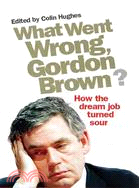圖書簡介Gordon Brown is one of the most influential politicians of the past 30 years. In opposition he was the strategic driving force behind New Labour. In Government he was one of Britain's most intellectually assured Chancellors, widely respected on the global stage, domestically dominant. Within his own party, he often seemed an unchallengeable power. Everything in his background, let alone his ambition, prepared him for the premiership. There were some (mostly devoutly Blairite) Gordon doubters, but when he acceded to Number 10, a combination of relief at the end of the Blair era and hope for a Labour revival brought a quick boost to the party's previously fading fortunes. And then Gordon stumbled. Prevaricated. The early "new dawn" promise clouded over. Where was the big plot from this big politician? Or were we only to be left with temporary tactics and cynical spin? Doubters grew in number?and noise. Even some of his most faithful former supporters began to believe that Labour's further decline could be attributed largely to one factor: Gordon himself. He couldn't do it. He was a big league politician, yes, but he couldn't lead the country, and risked losing the support of his party, too. What went wrong? Was it events? Or Gordon himself? Policy?or the man? Throughout his rise, and demise, Gordon Brown's fortunes and failures were most precisely and judiciously tracked and commented on by the Guardian and the Observer?the two papers whose reporters and analysts were the most critically understanding of New Labour in the British media. This book selects passages from the wide range of their thoughts and perceptions across the period to try and answer what will rapidly be recognized as one of the biggest political conundrums of this political period: how did Gordon Brown let the New Labour supremacy slip so swiftly away











